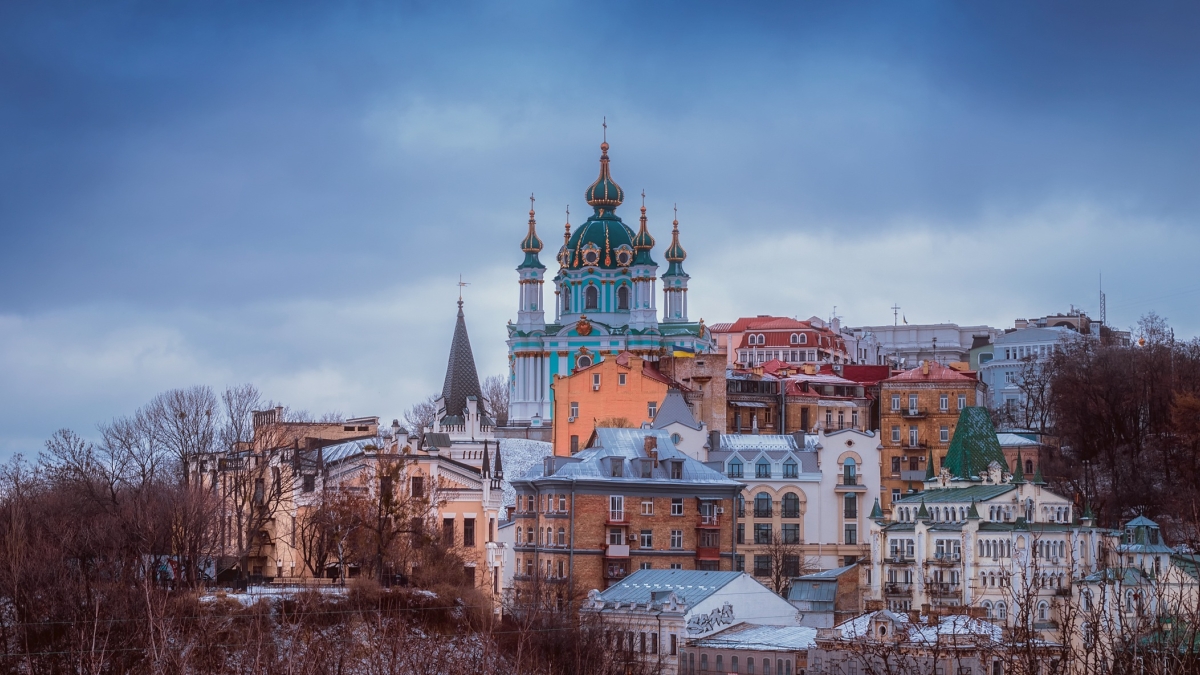McCain Institute's Kurt Volker talks about what's ahead in new role as Ukraine envoy

U.S. Secretary of State Rex Tillerson has seen a chance for progress in the conflict in Ukraine and has tapped Kurt Volker, executive director of the McCain Institute for International Leadership, a unit of Arizona State University, to work with both sides in the peace process.
Kurt Volker
Volker was named a special representative for Ukraine negotiations on July 7 and immediately traveled to Kiev with Tillerson, meeting the president of Ukraine, Petro Poroshenko, and other key players.
Ukraine and Russia have been in a violent conflict since 2014, after Russia annexed Ukraine’s Crimean Peninsula. The fighting has cost some 10,000 lives. Volker is working on convincing both sides to comply with the Minsk Agreement, a blueprint for ending the tensions that was negotiated by France, Germany, Ukraine and Russia.
“This conflict has been around for over three years, and there are still daily cease-fire violations,” Volker said. “There are still people dying. In fact, more people died in 2017 than in prior years. It’s still an urgent issue that needs to be addressed.”
Volker has worked in the U.S. Foreign Service, as a legislative fellow on the staff of Sen. John McCain, as acting director for European and Eurasian Affairs for the National Security Council, and was appointed U.S. ambassador to NATO by President George W. Bush in 2008.
Volker answered some questions from ASU Now in between trips to Kiev.
Question: How did Secretary Tillerson come to appoint you to this role?
Answer: I had met Secretary Tillerson on a number of occasions from when he was preparing for his own confirmation hearing and also since he’s become secretary of state.
In getting to know him, he asked me if I would be willing to take on this role of giving a new impetus to the negotiations to resolve the conflict in Ukraine.
Q: Are you doing the nitty-gritty work of diplomacy in this position?
A: In the sense of traveling and meeting and trying to find solutions with all of the stakeholders, that’s what I’m doing. If it’s sitting at a table and scrubbing a text, adding and deleting, that’s not what I’m personally doing a lot of.
The issue is fundamentally a political issue rather than a textual issue. The reason there is conflict in Ukraine is not that there is something wrong with the text.
We need to tackle this issue at a strategic level, not a textual level.
Q: With whom did you meet?
A: On this visit to Ukraine I accompanied Secretary of State Tillerson. I stayed on after his departure and had meetings with the president, prime minister, several members of parliament, several ambassadors, the civil societyThe civil society refers to the non-governmental organizations and institutions that work for the citizens of a country., the Red Cross, the International Organization of Migration. I also had a number of meetings at the U.S. Embassy with our ambassador, Marie Yovanovitch.
I had a lot of meetings to understand who all the players are in Ukraine and to touch base with them directly and understand the shape of the conflict and what’s been done already.
Q: Will you be returning to Ukraine?
A: In order to carry out this responsibility, I’m going to travel a fair amount. I have not yet visited the line of contact, the cease-fire line in Ukraine. I expect to go back in 10 days to do that. In addition I’ll need to speak with the other players.
It will be an intensive period over the next several weeks because there is a sense of momentum right now.
Changing the status quo and really getting a settlement in Ukraine is something we’ll be able to figure out in a year or so, or less. It’s not going to be something that drags out forever.
Q: Have you been to Ukraine before?
A: I’ve worked on Ukraine as a substantive issue in terms of its reform, its integration into Europe and NATO, and I have many friends and contacts in Ukraine as a result of that. A lot of this is not new, but it’s the first time I visited there.
Q: Will you remain executive director of the McCain Institute?
A: Yes. Secretary Tillerson asked me to take on this responsibility, and I’m happy to do so and I’m doing it on a voluntary basis without compensation.
The McCain Institute was created as a “do tank” and we want to get our hands dirty and actually solve our problems, and so taking on this responsibility is very consistent with that approach at the McCain Institute.
Top photo: St. Andrews Church, Kiev, Ukraine. Photo courtesy of Pixabay
More Law, journalism and politics

TechTainment conference explores the crossroads of law, technology, entertainment
What protections do writers, actors, producers and others have from AI? Will changing laws around name, image and likeness (NIL) eliminate less lucrative college sports?And what does the No…

How to watch an election
Every election night, adrenaline pumps through newsrooms across the country as journalists take the pulse of democracy. We gathered three veteran reporters — each of them faculty at the Walter…
Law experts, students gather to celebrate ASU Indian Legal Program
Although she's achieved much in Washington, D.C., Mikaela Bledsoe Downes’ education is bringing her closer to her intended destination — returning home to the Winnebago tribe in Nebraska with her…
